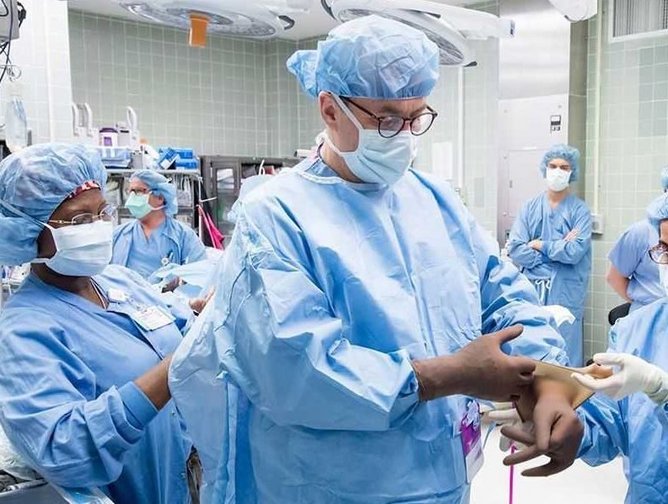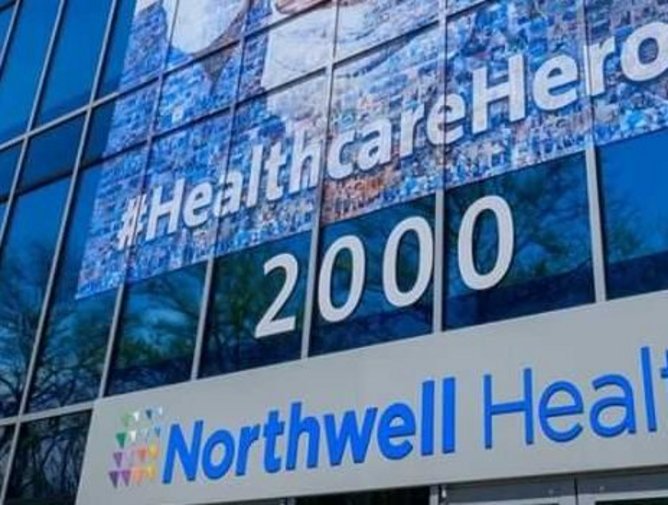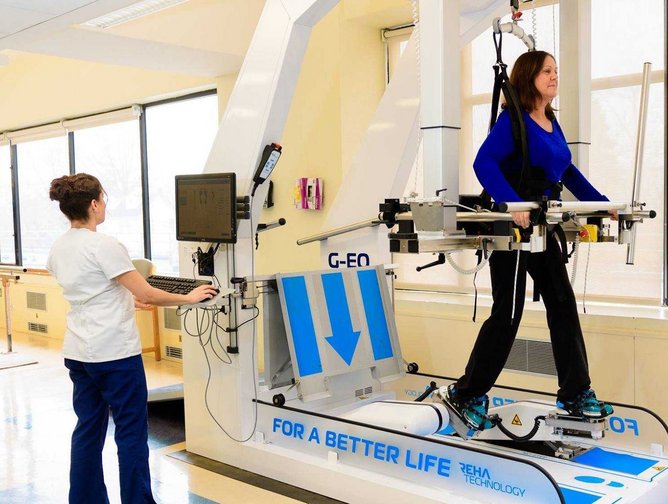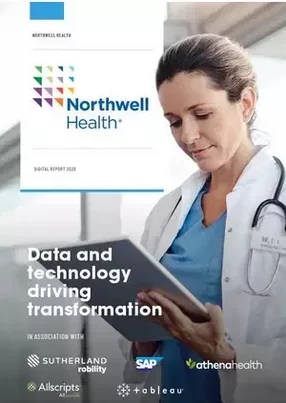Northwell Health: Data-driven transformation in healthcare
"Technology has enabled us to accomplish a lot more than we'd imagined,” says Chris Hutchins, VP, Chief Data and Analytics Officer for New York State's Northwell Health, discussing how the healthcare provider has adapted its operations to the COVID-19 pandemic. "We basically flipped the switch one day, and most of our workforce who are not involved with direct patient care started working remotely. I can only imagine that the load on the system was massive, but we didn't experience a lot of disruption. It's been remarkable," he adds. “Our entire executive team has taken extraordinary measures to prepare the health system for many scenarios that involve disruption to health system operations.”
Northwell is the largest healthcare provider in the state with more than 72,000 employees. Founded in 1997, it has 23 hospitals, nearly 800 outpatient facilities, medical and nursing schools, as well as the Feinstein Institute for Medical Research, which alone has 50 research labs. "It's the most truly integrated delivery network that I've ever seen,” Hutchins elaborates.
Presently, a key focus for Northwell is understanding the entire health system from the patient experience perspective. Indeed, the organisation has a department dedicated to this led by a Chief Experience Officer, who, along with other members of the executive team, examines every aspect of potential interactions with the health system from a patient perspective. They assess environment and services, noise levels, ease of access, signage, comfort and even the patient dining experience.
According to Hutchins, technology is helping Northwell to achieve a more personalised, positive patient experience. For example, smart devices are being deployed in inpatient units that enable communication, entertainment, food service options and much more. Its use, says Hutchins, is “about providing the patients with some of the comforts of home".
For some time, healthcare has been shifting to a preventive model, with the aim of reducing the need for hospitalisations. "Thanks to technology and advances in medicine there are more and more services that can be done in outpatient settings or in same-day surgery facilities so that patients don't require long term hospitalisation," Hutchins affirms. Telemedicine, which makes virtual appointments with clinicians possible, and chatbot technology, which helps to rapidly identify patient test results and is integrated with the electronic medical records (EMR) have come to the forefront. According to Hutchins: "Northwell is really depending on these types of technology, particularly right now, because we have to limit our interactions due to social distancing guidelines.”
This has taken on greater significance due to the impact of the global COVID-19 pandemic. For example, patients are being given smart devices so they can communicate with their families while they're in isolation, which Hutchins says, has been received very well. "I have heard a number of stories where patients were having to say goodbye to their family this way, although my favourite stories are the ones where the patient recovered and was reunited with loved ones. Those are the best stories of course, but, sadly they're not all like that. But just being able to deploy innovative technologies and solutions that we previously hadn’t in order to make that kind of difference for those receiving healthcare is really significant."
Hutchins has been interested in healthcare since his early days, when his mother worked in a hospital radiology department. During vacations and on weekends he gained valuable experience, learning about managing care from the ground up. "I liked the idea of being able to help people," he says, "and over the years I have had amazing opportunities to get involved in new areas."
A variety of roles followed, from working in back-end operations scheduling appointments and coding visits from physicians' notes, to learning how to build databases and integrating budgeting systems, until he was heading up reporting and analytics, which led to a role as an IT director. His duties grew till he was responsible for building out new facilities when practices expanded, and for big enterprise analytics. This eventually led to a role where he was responsible for extending an enterprise data warehouse function while integrating three different data warehouse environments, and helping to lead implementation of a new consolidated EMR. A year or two into this role he was blessed with the opportunity to join Northwell Health.
Over the course of his over 20-year career in healthcare he's seen how data and analytics have increased in importance. "It's only really been in the last decade or so that companies in the US have had a chief data officer,” he says. “It's a result of recognising the important role that data and analytics play, in helping you to make decisions and in developing effective strategies that not only support your business, but improve and grow it."
The value of data and analytics is particularly evident in the midst of the current crisis. Northwell’s emergency operations centre uses analytics to monitor call center volumes, occupancy rates, staffing and load balancing and multiple other critical data points to enable coordination of critical activities. Hutchins explains: "We're monitoring where we have capacity to send the patients so that there are no surprises and sites are prepared when patients arrive."
The company also uses analytics to make predictions such as anticipating what the demand for ICU beds, ventilators and personal protective equipment will be, along with how many staff and transportation vehicles are needed. "It helps us to see in which locations we'll need vehicles, and where we'll need to bring in assistance from the countless professionals that have come to support us in New York from across the country, as well as local and state government. All of those things are being supported with data and analytics."
Similarly, analytics is also enabling the company to better coordinate care so it can provide the right level of information for scheduling, for example when a patient is due for various screenings, or lab testing.
Hutchins says that one of the things that's been most impactful is the creation of a registry that's updated in near real time. By analysing records, including data from clinical systems, billing data from insurance claims, and other information, they're able to tell if a patient is due for a test, for example. "We're looking at virtually every patient in every emergency room we have in the health system, understanding how long they've been there, how long it's taking for them to be seen from the minute they walk in. We're understanding what the workflow is that will predict where we need to increase staffing levels. It's tied into our emergency operations centre, so they're able to determine where to route patients that call in for emergency services.
"We're also using datasets to manage emergency response vehicles, and understanding what's happening in the geographic locations that we serve,” he continues. “This means we're able to anticipate where surges may arise, and so can move those emergency response vehicles proactively so we can respond quickly. It's heavily used in logistics, and we've seen that more so with Covid than ever before."
Internally, Northwell has several key partnerships that help it manage its operations. GE Healthcare has been the company’s enterprise physician revenue cycle tool for a number of years, using its billing and accounts receivable management and analytics. Tableau Software is used for enterprise data visualisation across multiple departments, including strategy, quality, operations and finance because, as Hutchins explains, it's intuitive and easy to interact with. SAP is widely used for cost accounting and financial reporting; it also uses Sutherland Healthcare Solutions for robotic process automation, primarily focused on revenue cycle areas presently.
Allscripts provides the enterprise electronic medical records platform as well as managed IT services. Northwell and Allscripts are teaming up to build a next-generation EHR that will incorporate input from physicians, nurses and other medical experts and relies on an infrastructure that includes voice recognition, clinical decision support, artificial intelligence and machine learning.
Looking ahead, Northwell continues working on a platform that they have deployed that allows patients to interact directly with the health system, using the web and their smartphones to schedule appointments, search for physicians who can treat specific problems - for example by typing in simple keyworks like 'joint pain' - and even look for healthy food options in their area.
"I'd like to see us continue to grow and I'm sure that we will," Hutchins says, "doing more breakthrough research and innovation, particularly for cancer prevention and treatment. I want to see us continue to attract the best minds for research, medical practice, Information Technology and data science.
"There's a tremendous opportunity here in the New York City area, we have an enormous population centre that's incredibly diverse, and has representation of the population across the globe,” he adds. “We've been accumulating data for a couple of decades here that would take an unlimited supply of money, and a lot of time to build a similar infrastructure in other parts of the world to start capturing this data. We really have a unique opportunity to make significant discoveries if we can harness this data. I believe it could reveal tremendous transformational insights that can have a positive impact for future generations."





